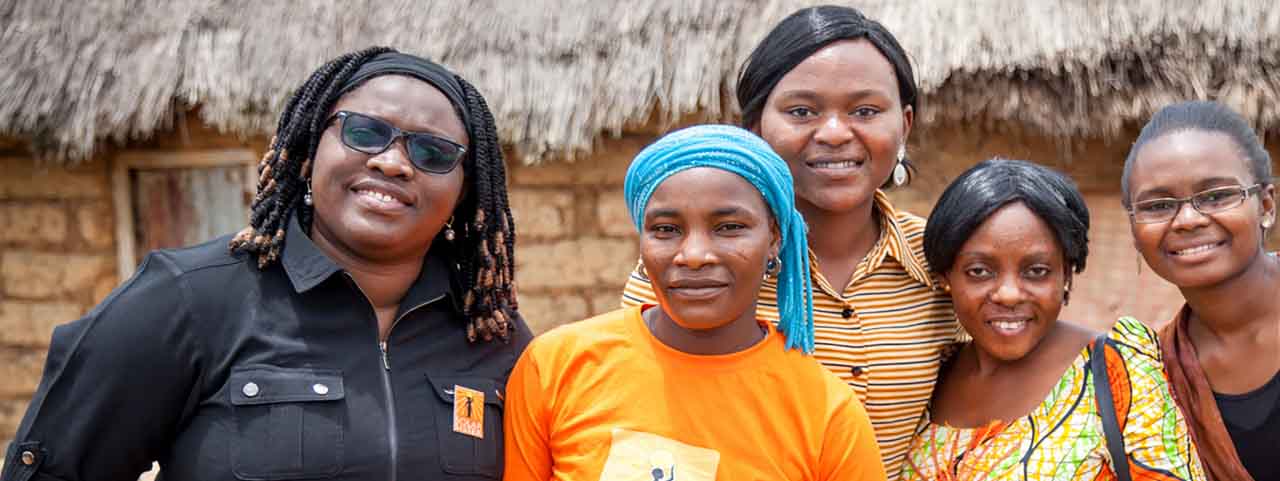
- Deciding on guiding principles:
It is very important to form some guiding principles because this ensures relevance, importance, credibility, and timeliness of the monitoring and evaluation survey. This entails ensuring that the information collected for the monitoring and evaluation is:
- Important and timely to improve project design, group learning and group decision making.
- Sensitive to the unequal power relations in the community and taking cognizance of the statements and comments of people who may have been marginalized or prevented from expressing their thoughts in the community.
- Feasible and focused in terms of the available resources at your disposal, making sure that it supports the action rather than prevents it.
- Credibly good and reliable to the best possible extent given the available resources
- Useable by other stakeholders so that it contributes to the larger evidence-base.
- Ethical for example in terms of data protection and permission.
- Deciding on the projects or programs that need monitoring:
It is essential to decide on the projects or programs that one needs to monitor. In this step prioritizing is key because numerous amounts of ongoing projects need monitoring. And it will be quite impossible to monitor all of them at once. Hence, you need to think about the various projects or programs needing assessment. You must consider its timespan and must figure out if it requires monitoring or if it is rather completed, thereby requiring evaluation.
- Selecting team members:
One needs to decide on who should be involved in the various phases of the monitoring and evaluation process. You should also give attention both to the information needs of your stakeholders and your own. Therefore, identifying the main stakeholders be it internal or external and deciding how to involve and inform them of findings is important.
Your team members may include:
- Everyone who has direct involvement in the program or project;
- The stakeholders in your wider community this includes the community group and specific networks;
- And the external stakeholders such as local and national policymakers and funders.
You could also work in partnership with a university department that is responsible for research.
- Data research:
This is a fundamental step in monitoring and evaluation as it covers several points and when followed accordingly, it could result in the overall success of the project. Hence, data research involves:
- Investigating:
Choose the main problems and questions you want to investigate. Extract questions and discover issues you need to address. Both internal and external questions and issues to your group.
- Clarity:
To track progress, you must identify and understand your objective. Therefore, you need to clarify your goals, aims, activities, and roadways to change.
- Essential data:
Information is needed in tracking, accessing your progress and understanding the reasons for the various changes. But you must identify the sort of information needed for that.
There are two types of information to be collected. They are:
- Quantitative information
This includes every numeric term. This will help you find answers to the "what", "when" and "how many" questions.
- Qualitative information
This sort of information refers to every descriptive prose. It helps address questions concerning beliefs, perceptions, attitudes such as the "who", "why" and "how".
- Data collection:
It is best to collect data from a variety of sources. This can be from internal and external sources. They include data obtained from internal records, periodic group discussions, and workshops as well as records of periodic surveys.
Nevertheless, the collection of data is not always smooth-sailing. One challenge that hinders the collection of data from external sources is the non-response. This can largely be prevented by:
- Sending a concise pre-notice letter
- A follow-up thank you card sent some days after the questionnaire
- A replacement question to serve as a reminder.
- A second and final reminder.
It is also very important to ensure data confidentiality.
Wrapping Up
Monitoring and evaluation survey is integral in obtaining data that drives positive development and brings brands closer to their business goals. Further exploration of the emerging African market is even more attainable when the process of obtaining data is done right. Whether you opt to obtain the data needed to achieve your goals yourself or you employ the services of professionals in the field, the earlier-mentioned processes must not be neglected at any point. With the right market research firm in Africa, you have nothing to worry about as you are guaranteed top data analysis, credible results and confidence in a reliable partner.
COUNTRIES WE CONDUCT M&E
Article continues....
Why Conduct Monitoring and Evaluation Survey in Africa
Monitoring and evaluation surveys may sometimes appear to be an unaffordable luxury, an unwelcome tool of external ....
Why Conduct Monitoring and Evaluation Survey in Africa
Monitoring and evaluation surveys may sometimes appear to be an unaffordable luxury, an unwelcome tool of external oversight or an administrative burden. Even though a larger part of the African content is often viewed to lack the financial means to embark on data research
Read MoreWhy You Should Think Twice About Your Survey
It is very important to form some guiding principles because this ensures relevance, importance, credibility, and timeliness....
Why You Should Think Twice About Your Survey
It is very important to form some guiding principles because this ensures relevance, importance, credibility, and timeliness of the monitoring and evaluation survey. This entails ensuring that the information collected for the monitoring and evaluation is:
Read MoreBusiness Optimization With Trend Analysis
To stay ahead of the competition and remain relevant in your industry, you must know how market trends influence your business sector.
Business Optimization With Trend Analysis
To stay ahead of the competition and remain relevant in your industry, you must know how market trends influence your business sector. Knowledge of market behavior will go further in meeting up with the needs of your clients...
Read MoreWe’re passionate about your market research project We believe our commitment to client service is what sets Fieldwork Africa apart from other fieldwork agencies.
Our project managers are extremely flexible and responsive in meeting all your market research needs. REACH US FOR M&E via mail@fieldworkafrica.com

kelvin Robinson
A Research Consultant with Fieldwork Africa, Kelvin Robinson writes SEO-optimized articles for businesses desiring a surge to their Google rank. This digital marketing word-smith is ever-ready to explore the latest online trend. He doubles as a Copywriter and Web-designer and has begun training on graphic design as he targets being a Creative Sensei. You can find this self-starter on LinkedIn and many websites where his articles feature under his name or as a Ghost (Ha-ha-ha!). Asides that, he is often on his bed watching out for the next-digital-big-thing or with friends, playing Scrabble or Chess.










